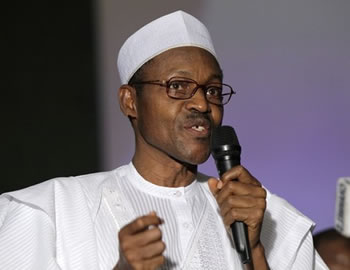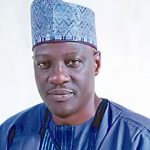
continued from yesterday
At work here is what Wale Adebanwi has aptly delineated as the ‘political and cultural uses of memory’ (p.433); that is, the power of collective memory, through the instrumentality of remembrance, to bolster the communal psyche, salve and restore a wounded pride.
Yes, indeed, we know a country by the kind of people it chooses to remember; we also know it by the kind of people it fails, or chooses, not to remember. If Nigeria were a country with a sense of history, Col. AdekunleFajuyi would be a prominent member of those ‘heroes past’ it crows so lustily about in its national anthem.
But this ‘gathering of the tribes’ (Soyinka’s phenomenally prophetic phrasing in A Dance of the Forests, a play that was intended, most ironically, as a celebration of the country’s independence in 1960, but which ended up as a chilling disquisition on its imperfect union!)still totters on from error to error, with the possibility of genuine nationhood as a distant hope. The virus of this pathology of being has compromised the necessary health of becoming, as tribal (I am using that epithet in full cognizance of its pejorative anthropological accretions!) considerations continue to trump national imperatives, and a dreadful vice on the national stage may be an enviable virtue at the triballevel.The likes of AdekunleFajuyi are not recognized as national heroes because there is as yet no ‘nation’ to be a hero in or of.
This is why the National Questionin Nigeria is perennially in search of a National Answer as ethno-regional loyalties ossify into deafening walls, and each group is fixated on its own survival most times at the risk of the national collective. No country can ever achieve nationhood when its component parts are as incorrigibly heterogeneous and somutually antagonistic as Nigeria now is and has always been. This is why those who blissfully aver that ‘Nigeria’s unity is not negotiable’ should quickly reconsider the dangerously complacent certitude in their avowal. This was one of the cheesy sloganswhich propelled the rhetoric of the Nigerian civil war, and it rode to victory in a crass, largely un-interrogated cavalry. But that was in another century, another millennium,another ideological ferment, long before Benedict Anderson’s idea of the Nation as an ‘imagined’ community, and the nation itself as a shiftable, shifting arrangement/artifice with its own unfair share of the profound indeterminacy that is so indigenous to the postmodernist/poststructuralist condition. Besides, those who talk so glibly about ‘Nigeria’s unity’ are under the perilous impression that there is a ‘unity’ to ‘negotiate’, in the first place. But a closer look tells us that we are still a thousand miles and a thousand moons from that unity, and that we need to work really hard and honestly for it to come within our grasp.General Alani Akinrinade said this (and much more) when he declared with authoritative candour in last Sunday’s Guardian:’There is nothing like unity in this country’ (p.15).Closely related to this viewpoint are Professor BanjiAkintoye’s numerous writings about the National Question, particularly his recent interventions in The Nation (July 14, July21).Let’s tilt our ears in the learned griot’s direction:
There is no country on earth that is beyond being dismembered or dissolved. Throughout human history, countries have arisen, flourished, and then lost some parts, or broken apart. (The Nation, p. 19)
Some of the eminent scholar’sviews on this matter are decidedly controversial, and many readers might be constrained to see Professor Akintoye’s statements from the prism of his passionate Yoruba nationalism, but the intellectual sagacity andsheer un-ignorable force behind the historical antecedents which inform his submissions make them so compelling for those interested in a genuine discussion of Nigeria’s National Question.Time to hold the bull by the horns; you do not solve a problem by wishing it away, or by denying its conspicuous existence.
As yet, Nigeria has no ‘unity’ to negotiate or not to negotiate. Which is why President Muhammadu Buhari must not only read the reports of the 2015 National Confab; he owes himself and the country acritical duty to read, digest, deliberate on, and identify its implementable parts- beyond all partisan and ethno-regional considerations. To wave off the lingering call for a re-structuring of this country is to risk the possibility of suicide through denial. Fredrick Lugard’s expedient contraption has been aching in every joint since 1914. If the house has not fallen according to Karl Maeier’s apocalyptic prognostication, it is simply because Nigeria has been extraordinarily lucky. The Avenging Angels of the Niger Delta, the resurgent Biafra agitators, the increasingly violent clashes between nomadic herdsmen and native populations, and other ethno-regional and religious eruptions in different parts of Nigeria are all pointers to the cracks in the walls of the house that Lugard builtfor the glory of the British Empire. The component parts have never met on any genuinely democratic platform to negotiate the terms of their co-existence. We cannot afford not to do something about this imperfect union. To refuse to re-structure is to prepare to de-structure.
But there is a vital need to scrutinize the word ‘restructure’ and interrogate its promiscuous connotations in our current political lexicon. For that term has become a mantra, a miracle code, and sound bite in the mouths of political opportunists, and some vengeful incantation in the arsenal of those temporarily out of power – but trying to scheme their way back to it. In other words, the Nigerian union is perfect if you are in the saddle,and out of joint only when you are out of control.Besides, the ‘re-structuring’ we need must go beyond the surface structure of the polity and reach far into the deep structure of the economy. For it is absolutely impossible to establish any political stability on the foundation of the present consumptive, prebendal, and pathologically unproductive economy with its suicidal dependency on oil. Is anyone talking about the moral structure of a country with a few bloated billionaires and millions of impoverished, disarticulated people? The way things stand today, every corner of Nigeria is a potential den of hungry Avengers.
The Yoruba strand of the National Question narrative deserves a thorough, hard-nosed, and visionary appraisal. Those who call for a relative autonomy that would allow Nigeria’s federating units appreciable room to develop their own way have their fingers right on top of the problem. For that, indeed, is the substance, soul and spirit of true federalism. But we need to find a way of doing this without allowing it to degenerate into a good-we vs bad-they; civilized-we vs primitive-they; advanced-we vs backward-they Manichaeism that ends up trumpeting the false superiority of one ethnic group and the assumed inferiority of the other(s). In other words, we must make sure that our ‘Yoruba Agenda’ does not bottom out as ‘Yoruba Exceptionalism’ with its attendanttriumphalist provincialism and hubristic extremisms. For the separate ‘Yoruba Nation’ that is being canvased in certain quarterscan never hope to be a nation of Angels. In other words, there is hardly any virtue or vice in the larger Nigerian body politic that is not in the Yoruba part of it. Much like other ethnic ‘nations’ in Nigeria’s ‘multi-national’ arrangement, the Yoruba have their own fair share of virtuous nation-builders and vicious nation-wreckers, consummate democrats and unrepentant ballot-riggers, conscientious citizens and conscienceless cesspools of corruption.
Furthermore, we must never underestimate the inevitable perils of homogeneity, the debilitating sameness in the cultural and socio-political gene pool that often breeds one-party states and their attendant despotic life presidencies, the kind of sameness that precipitated Somalia’s implosion prior to its eventual explosion. Forgive my skepticism as you consider this poser: if we cannot make Nigeria work together, is there any guarantee that we could make it work apart/in parts? The poet who sings an ode to diversity and difference couldn’t have chosen her/his Muse more judiciously. The avid Snooper TataloAlamu sums it all up so cogently with this characteristically brilliant remarks:
President Buhari needs not to be afraid of restructuring, but he should be wary of those who use the slogan of restructuring to preach hate and the summary dismemberment of the country. He should also bemindful of those who scream against restructuring as a strategy of keeping the nation in fossilized underdevelopment and Stone Age depredations simply to perpetuate an unjust system and its entrenched privileges. (The Nation, p.3)
Without a shred of doubt, there is so much in the life and legacy of AdekunleFajuyi, the great man whose memory we celebrate, that speaks to the inward-rooted, outward-looking philosophy, the plural, tolerant, accommodating Omoluabism that is the core and guiding principle of Yoruba culture and science of being; that amplitude of spirit, that unstinting magnanimity that has always lifted our gaze beyond the parapets of jingoism and ethnic chauvinism.
Continues tomorrow
WATCH TOP VIDEOS FROM NIGERIAN TRIBUNE TV
- Let’s Talk About SELF-AWARENESS
- Is Your Confidence Mistaken for Pride? Let’s talk about it
- Is Etiquette About Perfection…Or Just Not Being Rude?
- Top Psychologist Reveal 3 Signs You’re Struggling With Imposter Syndrome
- Do You Pick Up Work-Related Calls at Midnight or Never? Let’s Talk About Boundaries






